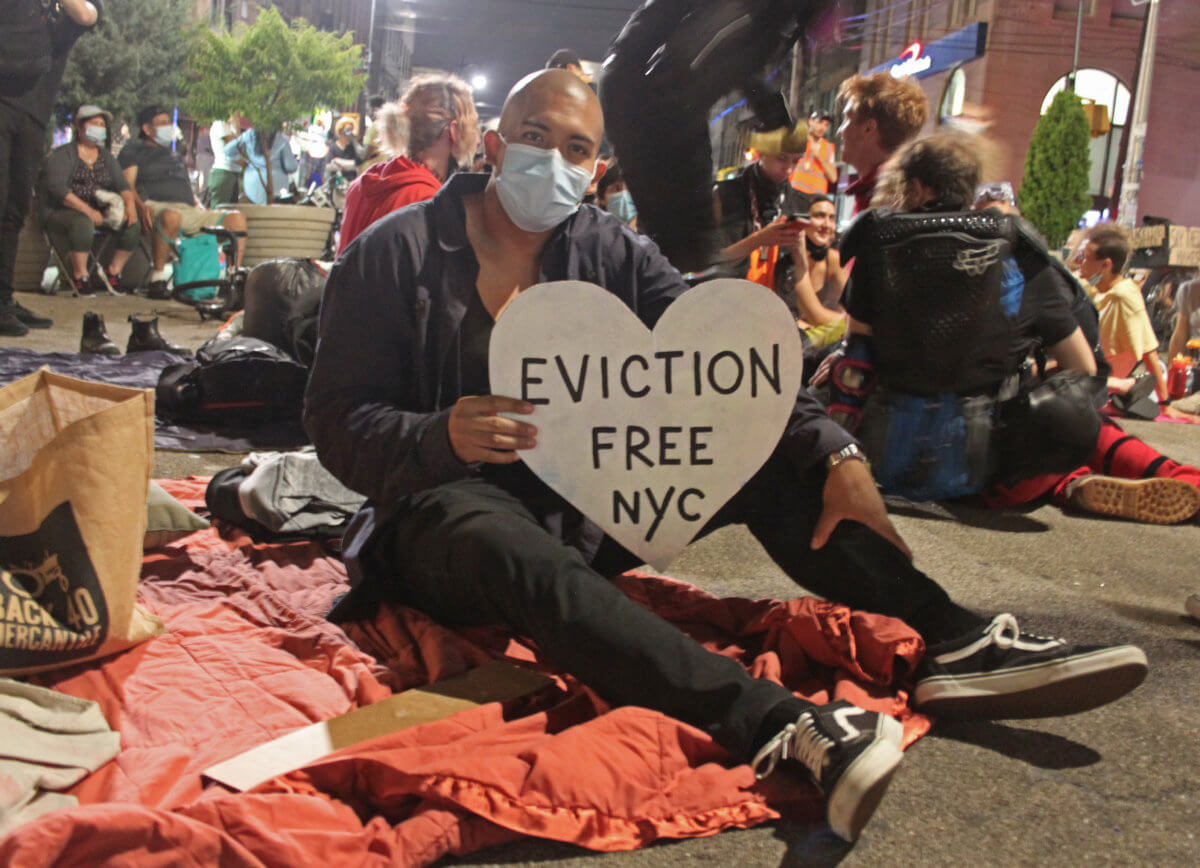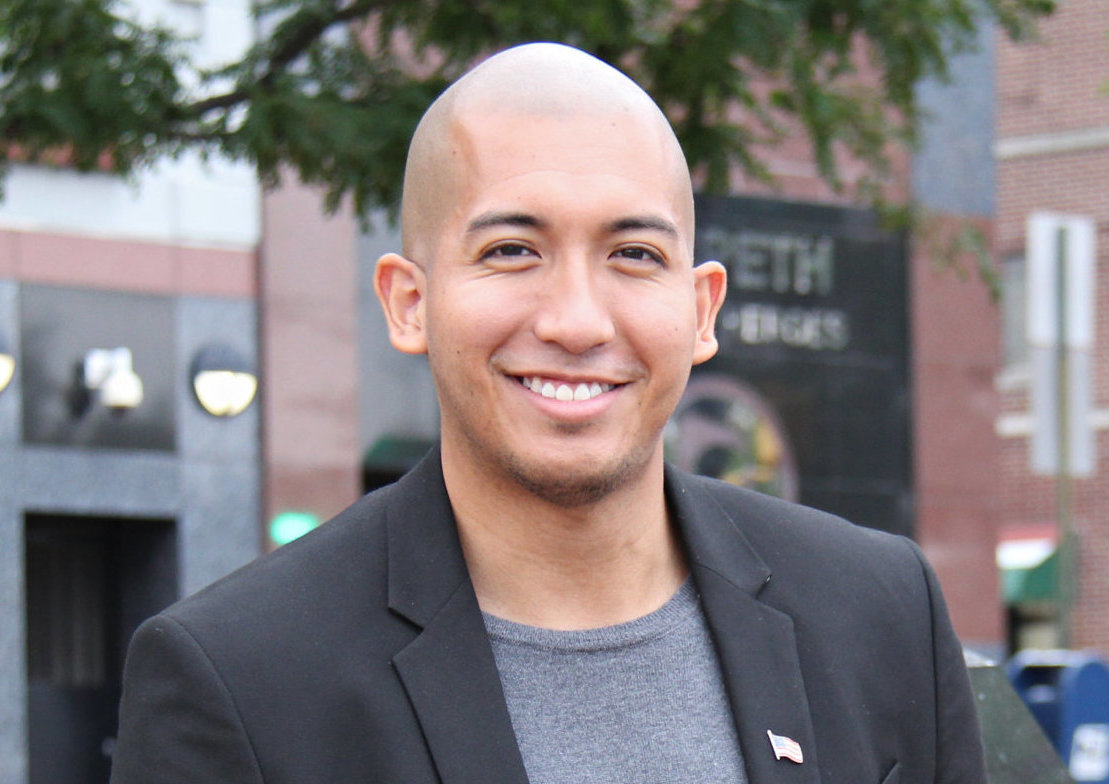Maspeth native and public servant Juan Ardila is vying to represent District 30 in the City Council as a Democratic candidate, with affordable housing for all, public transportation access and investment on more education as some of his main policy points.
The office is currently held by Robert Holden, who’s amassed a loyal following within the district’s conservative families — but Ardila says he’s equipped to appeal to the diverse needs of the district’s constituents.
“Each neighborhood has its own unique issues that really have not been addressed,” Ardila said.
The 26-year-old is a first-generation American, with a Colombian father and a Honduran-Cuban mother. Born in Elmhurst and raised in Maspeth, Ardila describes himself as a “local boy.”
Ardila attended St. Adalbert Catholic Academy in Elmhurst for elementary and middle school, then Archbishop Molloy High School in Briarwood, and later earned his B.A. in political science from Fordham University. He then got his master’s degree in public administration with a concentration in public policy analysis from New York University.
Ardila grew up in a working-class, immigrant household. When he was 17, he nearly lost his mother to deportation after she was denied her residency. Just a few years later, some of his family members in Honduras faced persecution from gang violence.
“I’ve never felt more afraid in my life,” Ardila said, adding that he knew he needed to go into public work to ensure other people don’t have to live through those hardships.
He currently works as a program coordinator at the Legal Aid Society. Previously, he worked at the International Rescue Committee, providing at-risk communities the services his own family were denied.
Ardila has also picked up government experience. He’s worked as the office manager for Councilman Brad Lander, who represents Brooklyn’s District 39, where he learned the policy making process and how to serve constituents for two years.
He then worked as a consultant at the Department of Education (DOE), supporting the expansion of the widely popular universal pre-K and 3-K programs, to ensure the youngest New Yorkers receive free, high-quality education.
Ardila particularly focused his efforts on expanding the pre-K Dual Language programs to promote bilingualism across the city, and serve the children and their families who speak languages other than English at home.
Ardila believes the city should invest more in teachers and students. He wants to see the way the city funds schools drastically change, not only by investing more in public schools, but also by making the system more equitable for low-income communities.
“We have a lot of overcrowding throughout the district,” he said. “Students learn so much more when they’re provided more individualized attention. Also, we’re in Queens, the most diverse place in the world, and I want our classrooms to genuinely reflect that.”
He also wants to see more investment in after school and summer programming, as well as more support staff for teachers and students, such as nurses and counselors, rather than more in-school police officers.
When it comes to District 30 — which encompasses the neighborhoods of Ridgewood, Glendale, Maspeth, Middle Village, Woodhaven and Woodside — Ardila sees housing, particularly affordable housing, as a main issue.
“If there’s one thing that all the cities that have implemented affordable housing and reduced their homeless population [have in common], is that they view homeownership not as a speculative investment, [but] as a human right,” Ardila said. “And I think that’s where New York City fails, we view it as an investment.”
Ardila believes the city should prioritize new housing for seniors and low-income families, and push an austerity budget by taxing billionaires.
With Ridgewood being eyed as prime location for development, which some residents say is leading to gentrification and displacement of low-income communities, and Glendale sought out by the city for an embattled homeless shelter, Ardila has a nuanced perspective on some of the main worries of the district’s residents.
Ardila attended the march and sleep-out in Ridgewood, accompanied by his mother, which was organized to send a message to Gov. Andrew Cuomo about what could happen if policy isn’t enacted to directly prevent families from eviction after losing their jobs and income due to COVID-19.
“There shouldn’t be any evictions, people are still not really working, we shouldn’t have to be paying our rent,” Ardila said at the sleep-out. “It’s all tied into the homeless crisis and racial justice issues.”

However, he doesn’t see the benefit of the city installing the homeless shelter on Cooper Avenue.
“You want to support homeless people, you want to set them up for success, so they have access to affordable housing [and] social services that they need so they can get back on their feet,” he said. “I’m not sure how placing people in a transit desert mitigates poverty [and] addresses root causes of poverty. It’s just not setting up anyone for success here.”
Ardila is encouraged by the support he’s received in the community so far. In his first campaign finance filing period in July, he was able to raise more than $20,000 with a little over 300 individual contributors and an average donation of $70.
“We actually had one of the most grassroots campaigns in terms of finances,” he said. “This was all from just doing volunteer work and supporting people. I am actually a bit shocked at how much traction it’s gotten.”
Ardila is the first Latino to run for City Council in the district, according to his campaign.
“Spanish was my first language at home, and to be able to represent the community, bring new ideas, a new dynamic, un poquito de sabor también [a bit of flavor too] is very special,” he said.
His goal is to represent the district as a whole — which is 57 percent white, 30 percent Latin, 8 percent Asian and nearly 2 percent Black — as well as the growing LGBTQ+ community.
“I believe in collective leadership, where it’s interdependent and you empower others,” Ardila said. “One where you bridge ideas together, and you establish relationships to ensure that public service and public programming can actually come to fruition and actually set people up for success.”




































